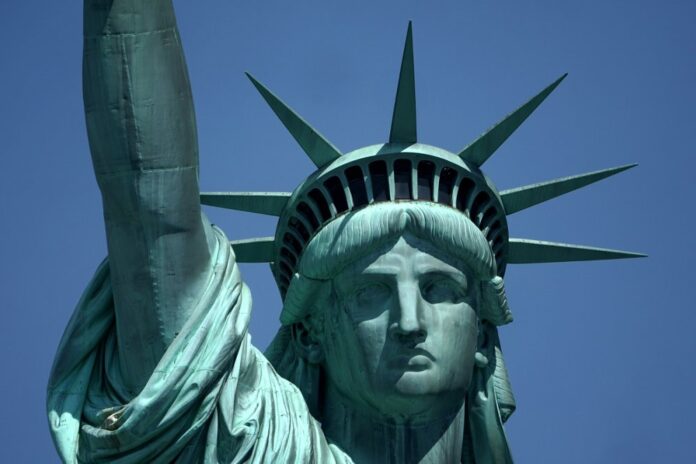Author: Andrew Bacevich
Affiliation: The Quincy Institute for Responsible Statecraft
Organization/Publisher: The Quincy Institute for Responsible Statecraft
Date/Place: October 18, 2020/USA
Type of Literature: Article
Word Count: 2720
Keywords: Stephen Wertheim’s Recent Book, John Quincy Adams, Isolationism, Liberal Internationalism, The US Establishment Elite, and U.S. Global Supremacy
Brief:
In this article by Quincy Institute’s president, Andrew Bacevich provides a critical assessment of the US’ grand strategy that has been adopted since World War II, and which has been subjected to the domination of the liberal internationalism paradigm. This strategy has not witnessed a significant change despite the tremendous international transformations that have occurred since that era and the disasters that this dominant current has inflicted on the US status and world situation. Bacevich tries to present an alternative paradigm that finds its first roots in the policy founded by John Quincy Adams, who was Secretary of State two centuries ago. Searching for the early background of liberal internationalism’s emergence in the US, Bacevich cites throughout the article an important recent book entitled: “Tomorrow, the World: The Birth of U.S. Global Supremacy” (October 2020) by the historian Stephen Wertheim, one of the founders—along with Bacevich—of the Quincy Institute for Responsible Statecraft in Washington, DC. The United States should not venture abroad “in search of monsters to destroy.” It was Quincy’s famous statement two centuries ago that underpins the alternative paradigm put forward by Bacevich, Wertheim, and the Quincy Institute, that is, the approach of restraint in foreign policy and ending the endless wars in which the US involves, in order to restore the country to the position of power and prosperity it had during its isolation era before the “turn” took place, the time at the beginning of World War II when it adopted what Wertheim calls the paradigm of “seeking dominance in the name of internationalism.” The article explains how the “story” of liberal internationalism began with sublime elites of “White Anglo-Saxon Protestants” (WASPs), who hail from prestigious universities, think tanks, and journals such as Princeton and Yale Universities, Council on Foreign Relations (CFR) and its Foreign Affairs Journal. All were institutions (and still are) linked to the foreign affairs establishment. Even before the Pearl Harbor attack, these elites managed to make “isolationism” as an “outcast and insulting” word among Americans and an “unrealistic” paradigm, that a great nation like the US was unworthy to stay and watch selfishly while the free world collapsed under the blows of the Nazis and fascists, instead of the US shaping it. This elite has made global American military supremacy a prerequisite for a decent and free world. Here, Bacevich considers that liberal internationalism was never the American citizens’ choice, but it was a paradigm imposed from the top by an elite who dominated decision-making. Until now, this narrative framework still dominates the State Department, whose elites warn of “obsessions of isolationism” (which returned to the fore with the election of Trump in 2016) as a threat to “American global leadership.” After he lists the disasters that have inflicted the US’ status because of these elites, the author raises a fundamental question regarding the reason that makes the “dominance in the name of Internationalism” a dominant paradigm at present despite all the disasters that it has caused, along with the tremendous transformations that the world has known since eighty years. In other words: Why has there not been a reassessment of American policy that makes a “new turn” in its course, as described by Wertheim in his book? In answer to this question, Bacevich considers that the existence of a political elite that is unable to distinguish between self-interest and national interest is a fundamental reason for that. So, the quest for “dominance in the name of internationalism” is only a means of asserting the power of foreign policy elites. As for Trump’s change in this dominant path, the author sees nothing but a cosmetic change full of a series of strange and random zigzags due to President Trump’s incompetence and betrayal of trust. The author believes that Biden’s election represents a strong return to the elites of “dominance in the name of internationalism.” Biden will have close contact with prominent figures from the CFR and will sing the slogan of “American Exceptionalism,” just as he repeated –in his recent article in Foreign Affairs—some “buzzwords” about protecting the free world and the US needing to lead again. Bacevich expects Biden to increase the Pentagon’s budget, keep American forces in the Middle East, and become tougher with China. The US will remain the number one arms dealer globally and accelerate efforts to militarize outer space and modernize its strike nuclear power. Finally, Bacevich asserts that real change will not be possible unless there is a “turning point” from the bottom, not the top, as happened eighty years ago, through the real democratization of foreign policymaking, i.e., not excluding the people’s will in shaping it. Herein lies the crucial role of the American people, that is, to ensure that their country is spared from engaging in new adventures abroad “in search of monsters to destroy.” Quincy’s advice may be one of the essential steps towards the recovery that the American people have long been looking for.
By: Djallel Khechib, CIGA Senior Research Associate




